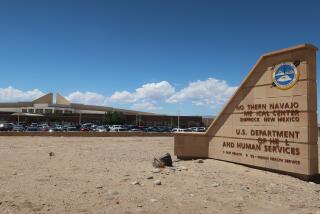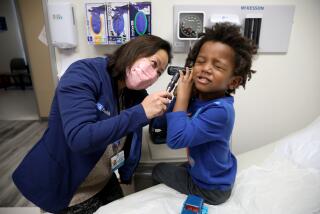Health Care in the U.S.
- Share via
I congratulate Dr. Martin Shapiro for addressing the sad state of health-care delivery in the United States today (Op-Ed Page, Aug. 4). As a registered nurse who works full time, through an agency, in a variety of emergency rooms, I have seen, time and time again, basic health care denied to those who are not fortunate enough to be able to afford private health insurance.
Take, for example, the woman who was suffering from severe stomach pains during her second trimester of pregnancy. After taking the bus to the closest emergency room and waiting for almost three hours to be seen, she was informed that she couldn’t be treated because the hospital didn’t accept Medi-Cal. She was told to make her way to the nearest Medi-Cal or county facility, where she knew the wait to be examined would be at least four more hours. Is it any wonder that, in pain and frustration, she simply gave up and went home. Unfortunately, I have watched this drama played out many times: different people, different illnesses, different hospitals, same results.
I recently returned from a month in Nicaragua. As a health-care professional from the United States, I am ashamed to say that this underdeveloped, war-torn country delivers health care to the general population with greater expediency and compassion than does our rich, industrialized nation. Although Nicaragua may not have the equipment and technology available to us, their policy is that health care is a right of all the people, not a privilege to be enjoyed only by the wealthy.
I agree with Shapiro that the loss of the trauma network is a blessing in disguise. Perhaps when those of us from the comfortable middle class (and above), experience the terror and frustration of watching a loved one suffer from lack of medical care, as a result of the politics of our health-care system, we will wake up to the injustice and inequality that we ourselves have created.
JUDI KESSLER
Culver City
More to Read
Sign up for Essential California
The most important California stories and recommendations in your inbox every morning.
You may occasionally receive promotional content from the Los Angeles Times.













